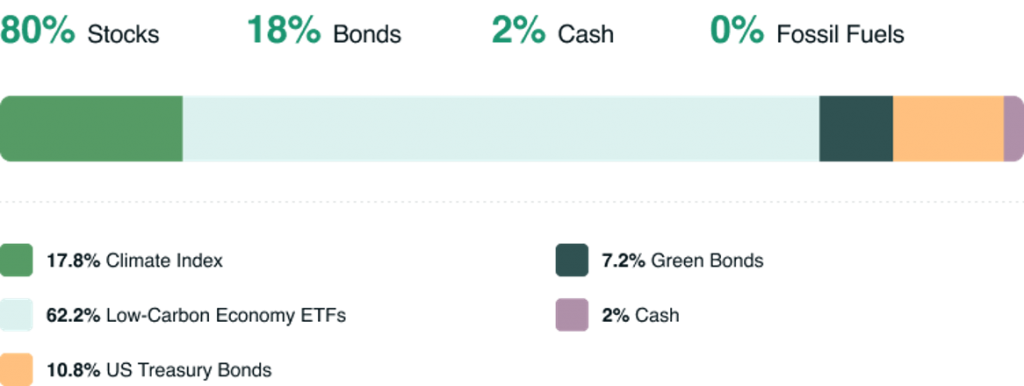There are many new ways that non-accredited investors can take part in fighting climate change, from investing in startups and renewable energy projects (via crowdfunding) to new banking and investment options.
This week, Zach Stein, one of the Co-Founders of Carbon Collective, talks about how he is envisioning the future of ESG investing.
What are you working on?
Carbon Collective is a new investment platform that allows you to invest in low-fee, diversified portfolios that are 100% aligned on solving climate change. Right now, what we want to do is help you divest from the companies that are making climate change worse and use that to invest in the companies that are building solutions to climate change. Customers still get the diversity that they want when they are looking to invest in IRA, or something similar. In the long run, we want to be able to use our collective shares to push the parts of the economy that don’t depend on fossil fuels to fully divest from them themselves and to go fully carbon neutral.

What does that impact look like?
We can’t really quantify our impact (yet), but we focus on going beyond ethical investing.
Those of us who are saving for retirement have a unique power in that you can hold a share for 30 years. So, the more shares that long-term investors hold, the more shares that we are removing from circulation. As a result, when companies have good news, it can help them do even better (due to higher demand). For instance, Plug Power was able to sell shares because of high investor demand.
In the long term, we aim to engage companies at the shareholder resolution level. Going green is not only going to help their bottom line, but also help them in their branding, as well as setting aggressive targets and establishing enforcement measures to achieve these goals.
How is Carbon Collective different from others in the space?
It’s common that ESG funds screen out companies, resulting in fewer bad companies rather than including companies that are building solutions to climate change. Some of the biggest ESG funds in the world don’t have any renewable energy companies in them. For instance, Betterment’s Climate Impact portfolio is using an ESG framework, but 5% of the portfolio are fossil fuel companies. Another one is ETHO, which is probably my favorite of what’s out there. They are looking at which companies in a given sector are in the lowest quartile for carbon emissions. However, Etho has few companies that are building climate solutions. It’s also a mid-cap heavy fund. For many investment advisors, holding ETHO alone would be pretty far from a balanced portfolio as you’d probably want to balance it with more large-cap investments.
At Carbon Collective, we want to make sure that we set a clear framework. We use scope 1 and 2 emissions to build portfolios with 7x lower carbon emissions than the S&P 500. We believe in making our portfolios truly climate focused and aligned. We fully remove all sectors that depend upon fossil fuels, and we give that allocation to the companies that are building climate solutions. So, we are significantly overweighting the companies that are building solutions to climate change.
Outlook
Over the next 10 years, we’re going to see a shift from ESG investing to impact investing.
Carbon Collective creates impact with shared capital, but the only way to do that is to make good investments, meaning that we have to remove every reason to say “no” to ethical investing around climate change. Historically these have been:
- It’s too expensive; so it needs to be the same price or less as a generic investment portfolio.
- It’s not a smart investment; so it needs to be just as diversified and as strong of an investment as other options.
- It doesn’t have clear impact; so it needs to have a clear through-line of impact that anyone can understand
Carbon Collective’s goal is to expand, drive as much impact as possible, and push the companies that have the most brand risk to decarbonize faster, bringing the rest of the economy with them.
About The Author

Daniel currently works at Lawrence Livermore National Laboratory. His original assignment was to maintain and update facility safety documentation for all facilities on-site, and perform risk analysis. Over time, his role has expanded to leading continuous improvement efforts through product management.
Concurrently, Daniel volunteers with Techstars, helping organize startup weekends, and with the American Institute of Chemical Engineers, organizing events on the local and national levels of the organization. He also volunteers with One World, and previously with Powerhouse Ventures, to source and screen startups for potential investment.
Daniel holds a BS in Chemical Engineering from UC Davis, and recently completed coursework in energy innovation from Stanford. His passion is at the intersection of sustainability, innovation, and business.

